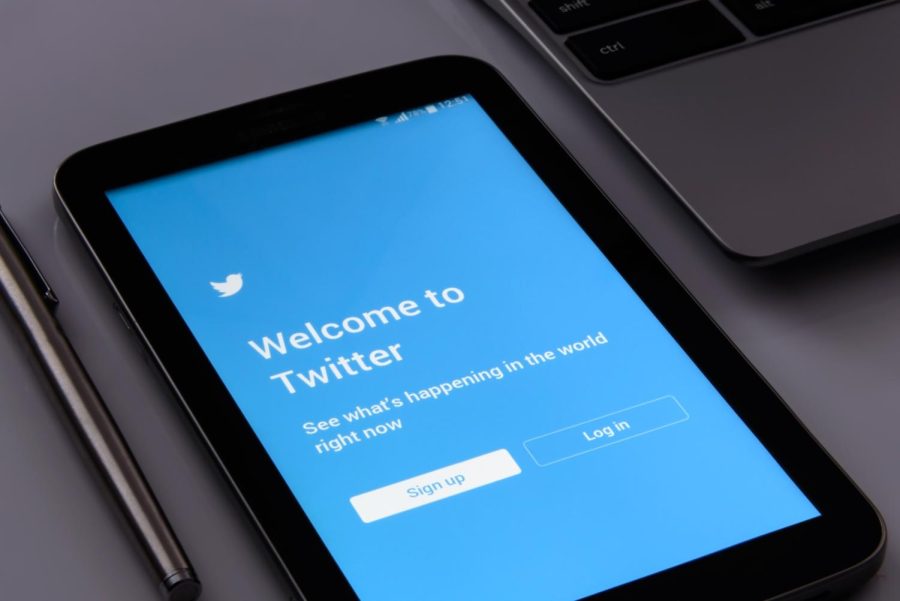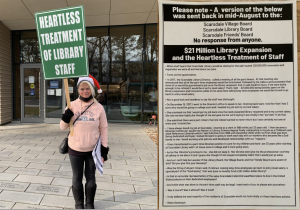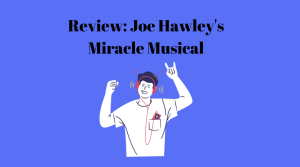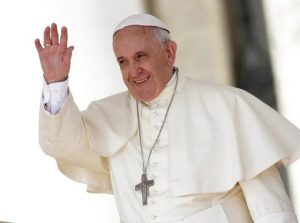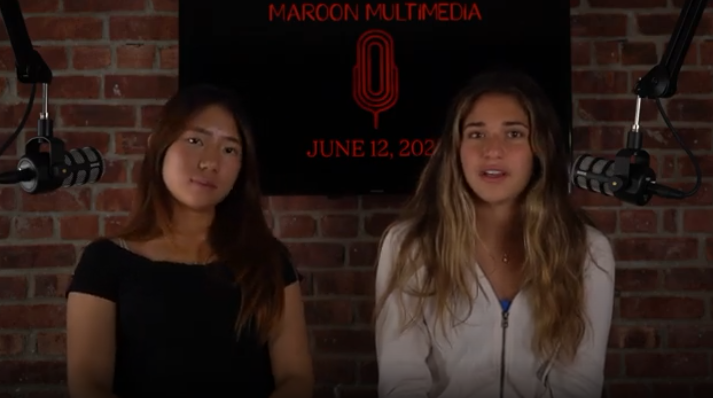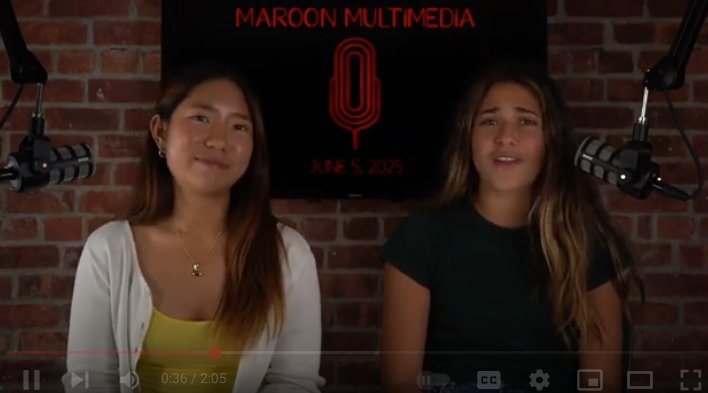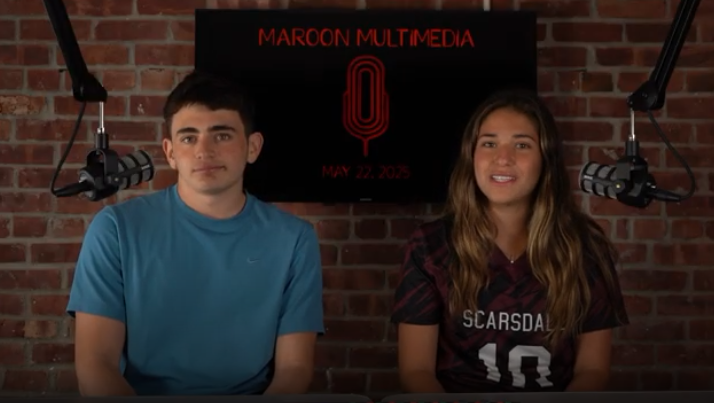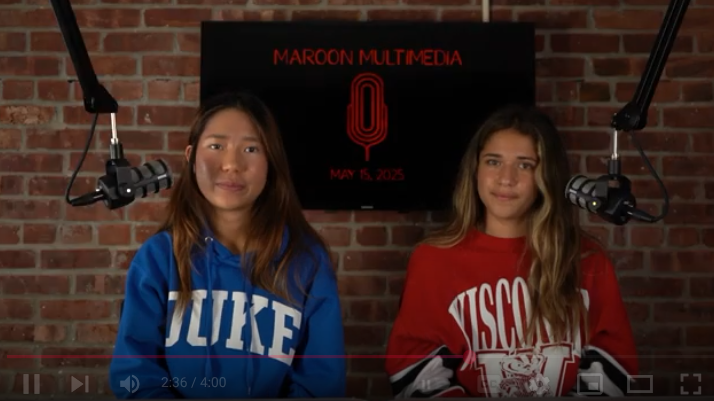Tumult at Twitter
Since Elon Musk became the owner of Twitter, there has been significant discussion surrounding the platform.
December 8, 2022
Did you hear about the eccentric billionaire who walked into the lobby of a company’s office building carrying a kitchen sink? No – this is not the opening to a joke. Nearly seven months after first offering to buy Twitter, which was followed by backtracking, legal drama, and a stock crash, Elon Musk, the controversial world’s richest man, finally closed a deal for the social media giant for a mind-boggling $44 billion on October 27, 2022. In a display of his unconventional antics, the day before completing the acquisition, Musk tweeted “Entering Twitter HQ – let that sink in” and walked into Twitter’s San Francisco headquarters carrying a porcelain kitchen sink, which is symbolic of the term “kitchen sinking,” meaning to take radical action at a company.
Musk, best known as the founder of Tesla, an electric car company, and SpaceX, the aerospace company whose goal is to enable the colonization of Mars, claims he didn’t buy Twitter to make more money, but rather to help humanity because he wants to create the “common digital town square.” Is Musk’s purchase of Twitter just a publicity stunt or is he just the anti-establishment maverick needed at this moment in history to spearhead social media’s reckoning?
Twitter launched in 2006 and rapidly evolved into a cultural phenomenon. With its distinctive character-restrictive messages, doubling last year from 140 to still only 280 characters, it’s become a popular means for people to share ideas about every topic imaginable. Individuals, companies, and celebrities use Twitter to connect, share quick updates, and advertise products. Twitter’s broad audience and concise content allow it to be many things to different people. It enables discussion between people and online community building. And notably in our attention-deficient world, it has become the news source of choice for many, allowing critical information to become available to millions around the globe more expeditiously than is possible by mainstream news outlets.
Twitter’s evolution has even made it an essential strategic political tool for candidates and elected officials who use the platform to communicate directly and instantaneously with their constituents, enabling them to garner the support of would-be voters more quickly and powerfully than ever before in history. Although greater political awareness and participatory citizenship are good things in a democratic society, these social media tactics have also had the negative effect of spreading divisiveness, fueling the political polarization that exists in our country.
As a result of current societal schisms, we have seen bullying, violence, and even the anarchical riot that took place on Capitol Hill on January 6, 2021, which shook our democratic foundations to their core. Far from the idealistic notion of productive political discourse, Twitter has provided a pulpit for hate speech and an outlet for bad actors to promote conspiracy theories. Anyone can be an amateur journalist and unlike traditional news forums, there are no fact-checkers or morality standards. While most users do utilize the platform to share helpful and interesting content, in recent years, Twitter has taken center stage as social media has been blamed for facilitating the dissemination of misinformation. In addition to the problems caused by human provocateurs, Twitter is plagued with the issue of bots, which not only create unwanted spam, but also have been employed by special interest groups and enemy states to spread dangerous propaganda to influence policy and even election outcomes.
One of the most high-profile instances of Twitter misuse has been by former President Donald Trump who, throughout his candidacy and term in office, routinely tweeted his every thought. In the days leading up to and on January 6, 2021, he tweeted often about his opinion that the 2020 presidential election was stolen. On January 6, 2021, many of his supporters violently stormed the Capitol, with the intention of disrupting the peaceful transfer of power and the desire to harm officials who wouldn’t capitulate to their demands to overturn the election. In response, on January 8, 2021, Twitter permanently suspended Trump, citing a violation of the company’s Glorification of Violence policy. Since then, heated debate about what constitutes free speech has arisen.
Complicating matters further is that while Trump’s Twitter de-platforming has served as the poster example, many other public figures, including politicians and celebrities, have promoted hate speech via Twitter, yet still remain on the platform. The challenge lies in defining reasonable boundaries for free speech. What does free speech mean in this day and age? Who should be able to determine acceptable norms and what consequences should exist for violations? How can social media serve the public’s best interests while not undermining our most vital democratic ideals?
Social media companies must manage content to the extent that a post promotes violent and extralegal activities, albeit these actions run the risk of being interpreted as political meddling and potentially even seeking to alter free election processes. However, the key question is whether a private company or even the government should have the unilateral ability to determine whether a post is true and should remain online. Harvard scholar Professor Jonathan Zittrain, in a recent article in The Atlantic, instead advocates for community governance structures to decentralize control and establish normative boundaries for online behavior, while at the same time avoiding the risk of a small group of people’s views being privileged over others which would be in direct opposition to the spirit of the First Amendment.
In the time since Musk took over as the self-proclaimed “Chief Twit” at Twitter, the company has undergone public upheaval far beyond what is typical in a corporate takeover. Musk has dissolved the company’s board of directors and more than half of all employees have either been laid off or have quit, including most of the company’s top executives. This includes most of the teams previously responsible for content management. Most recently, Musk issued remaining employees an ultimatum to either commit to an “extremely hardcore” work environment via an online form or leave. Hundreds of employees responded by leaving. In addition to focusing on these drastic personnel changes in his early days of owning Twitter, Musk is experimenting with potential solutions to solve the serious issues around content management, bots, and impersonation.
Twitter’s Community Notes system, previously called Birdwatch in its pilot phase, launched publicly in October. It’s an attempt at a form of community governance whereby authorized contributors can write notes that provide informative context on tweets that they believe are misleading. The process allows users, who meet certain prerequisites, to sign up as community contributors. Once approved, if they identify information in a tweet that they think is incorrect, they may suggest “notes” that provide additional context that could be useful for readers to develop a more complete understanding of an issue and additional sources of information. When a note is submitted, before it is made available to the public, a peer-review system allows fellow moderators to provide feedback on the suggested note and rate it based on several factors, including its helpfulness and accuracy. An algorithm is then employed to minimize bias by confirming that a given note has received a sufficiently high rating from an adequate number of contributors who seem to come from different perspectives based on how they have rated notes in the past, not on self-reported views or demographics. Only then is the note added to the original tweet for the public to see. This approach allows for transparency since the system runs entirely on publicly available data. While not a complete solution and one that still needs refinement, it is a step in the right direction on content moderation. Since Musk’s purchase of Twitter, the number of notes has increased threefold. Expansion of Community Notes should help address the issue of misinformation, allowing for a quick response in a trusted and valuable manner, without resorting to entirely removing posts.
Musk has undertaken a policy of reviewing all previously banned accounts to determine which should be reinstated. Additionally, in Musk’s effort to institute more democratic means of managing content, he created a poll about whether Trump should be reinstated, As a result, Trump’s suspension from the platform was reversed on November 19, 2022, although he has not yet used his reinstated account, likely only because Twitter is a competitor of his own Truth Social social media platform on which he has been regularly posting since being removed from Twitter. On November 21, 2022, Musk also reinstated Ye, previously known as Kanye West, onto the platform, after he was banned from Twitter by the company’s previous management at the start of his recent binge of antisemitic tirades. However, after only 10 days later, he was once again removed for posting an image that included a swastika, which Twitter says violates the company’s anti-incitement of violence policy. This followed Ye’s appearance earlier that day on Alex Jones’ podcast where he spewed anti-semitic comments, proclaiming “I like Hitler” amongst other things. Apparently, even for Musk, some hate speech is too egregious and must be dealt with swiftly, rather than solely relying on additional posted content to provide greater clarity to the bigotry.
In the past, Twitter gave notable accounts verification marks to confirm their identities to online followers. Musk has recently changed what verification means. Instead of being reserved only for notable accounts to verify their authenticity, he introduced a tiered pricing structure where anyone can pay $8/month for verification. Additionally, under this new structure, verified accounts now appear first in search results and replies. Musk has said he believes that forcing payment for Twitter accounts will combat the problem with bots, betting that most people will pay the monthly fee and thereby relegate fake bot accounts to a noticeably diminished status. However, in trying to solve one problem, Musk may have inadvertently caused others. While online impersonation has always been a problem, in the days following the policy change, impersonation skyrocketed. Moreover, with this pay-to-play approach, only those who can and are willing to pay will get their voices heard, which is actually a departure from the notion of a “digital town square.” Legislators, like Representative Alexandria Ocasio-Cortez, have called out this type of fee-based prioritization as a potential inhibitor to free speech. Musk paused the new policy amidst controversy.
Only time will tell if Musk is the right person to lead social media through its next era. It will be interesting to see how not only Twitter, but also other public forums, which will undoubtedly react to whatever direction Twitter moves, evolve on the issues of content management, user verification, and impersonation. It will be equally interesting to see what stance agencies like the FCC, legislators, and law enforcement take to monitor against would-be criminal activity, yet still protect freedom of speech. We live at a tenuous time in history. While free speech is a fundamental ideal of our democracy, continual redefinition of policy related to speech has become imperative for society as technology rapidly progresses, changing and enhancing our methods of communication and access to information. Let’s hope that Musk really does throw everything, including the kitchen sink, at developing new mechanisms to safeguard the indispensably positive contributions that social media has made to our lives, while also working to eliminate the amplifying effect that it can provide to insidious online behavior.

